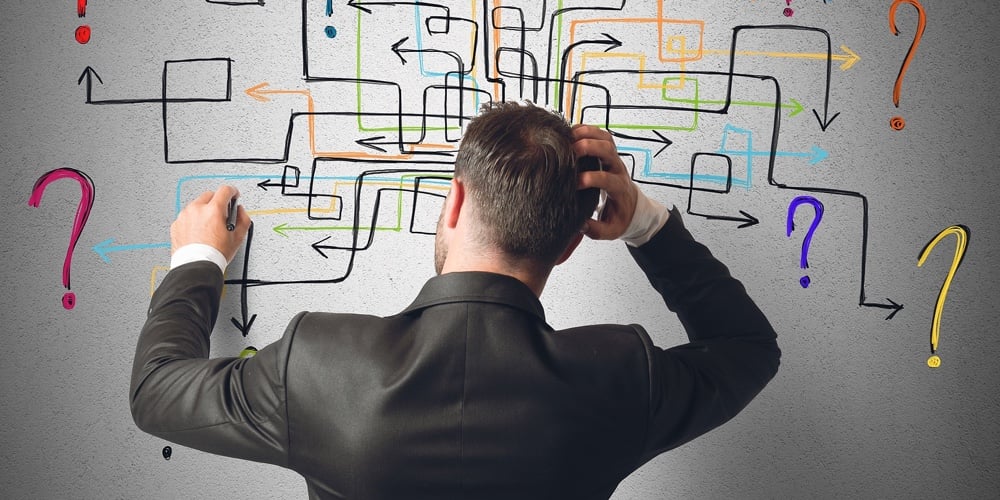The art of the decision
There’s no escape. As a leader, one of your primary responsibilities is to make decisions. The decisions you make and the way you make them is key to earning the respect, trust, and loyalty of the people you serve.

In my life as a Sensei I had to make a lot of decisions. Some of these decisions could make or break a student, my organization, or my own spirit. One of the most valuable lessons I learned, and one I share very often in our workshops is that unless you’re just plain careless, you can’t make a bad decision.
In movies, books, and myths the Sensei is often the Yoda character—the wise elder offering sage advice and making wise decisions. You can harness the wisdom of the Sensei to make not only good decisions, but decisions that engage and inspire the people who trust in your leadership. Let’s look at some of the characteristics and disciplines you can put to work to make better, more impactful decisions right now.
Mindfulness. Condition yourself to be in a state of heightened awareness and presence—tune in to the nuances of each situation. This allows you to make informed decisions based on a deep understanding of the context and implications involved. To do this, regularly practice some kind of mindfulness exercise like meditation. Give yourself mind-clearing breaks when you’re dealing with difficult decisions. Give yourself time to ruminate and think about the possible outcomes of your decision.
Humility. This is a powerful tool in decision-making. True mastery requires acknowledging your limitations and embracing a mindset of continuous learning and growth. Be open to feedback, insights, and alternative perspectives—from all levels. It’s very often the case that someone on your front lines has greater wisdom in a particular situation than anyone in the C-suite.
Lao Tzu once said that “Mastering others is strength. Mastering yourself is true power.”
Being open to the idea that others may know more than you, have more experience, or simply have a better view of the problem expands your understanding and enhances the quality of your decisions.
One of the greatest arguments in psychology today is centered on the struggle between our rational and emotional minds. This is nothing new. I remember a powerful lesson taught by one of my favorite teachers, Dr. Yang Jwing-Ming. He helped us understand this struggle with the idea of the “horse mind” versus the “monkey mind.”
Think of the monkey mind as our emotional side. This part of our mind often seems scattered, like a monkey jumping from tree to tree—easily distracted and attracted to quick rewards. The horse mind is embodied in the idea that the rider sits on top of an animal much more powerful than we are, but is able to control the horse and direct its power.
So which is better?
For years psychologists have wrestled with this problem. Do we rely more on reason or emotion in making decisions. More than ever, the evidence points to both. It’s more a matter of what role each has in our decision making process. The most up-to-date research indicates that while emotion may get the ball rolling, the two work together to complete the picture. Purely rational decisions subverting emotion can be as uninformed as letting our emotions run away with us.
Balance intuition with rational analysis. While data-driven insights provide valuable guidance, intuition serves as a powerful tool for tapping into your inner wisdom and intuition. Respect both approaches and you can achieve a harmonious synthesis that transcends mere logic, resulting in decisions that are not only rational but also aligned with your values and intuition.
Let’s finish with one more: Resilience. We have an old saying in martial arts:
“Knocked down seven times—get up eight!”
In the face of uncertainty, adversity, and setbacks, leaders need fortitude and perseverance. You need a reserve of inner strength to navigate challenges with grace and determination. Embrace failure as an opportunity for growth and learning and you’ll cultivate resilience.
Unfortunately, in today’s culture, we crave safety, security, and certainty at the expense of experience. Nobody wants to suffer all the time, but there’s no escaping the fact that we only grow stronger when we’re challenged. We are most creative when we’re finding our way out of trouble. We’ve got to stop hiding from danger. Celebrate adversity—it’s your chance to become the person, and the leader, you might not have ever been without it.
Do your best to be informed, get input from as many perspectives as possible, trust your intuition and your intelligence, and make sure you’re acting best interests of your people. Do the best you can with the information you have given the situation right here and right now, and accept that your decision is the right one—right now. But make a decision. Your people are counting on you.
Lead with Heart: Unleash the Power of Human-Centric Leadership. Empower, inspire, and guide your team through change with The Sensei Leader.
Visit TheSenseiLeader.com for more information…





